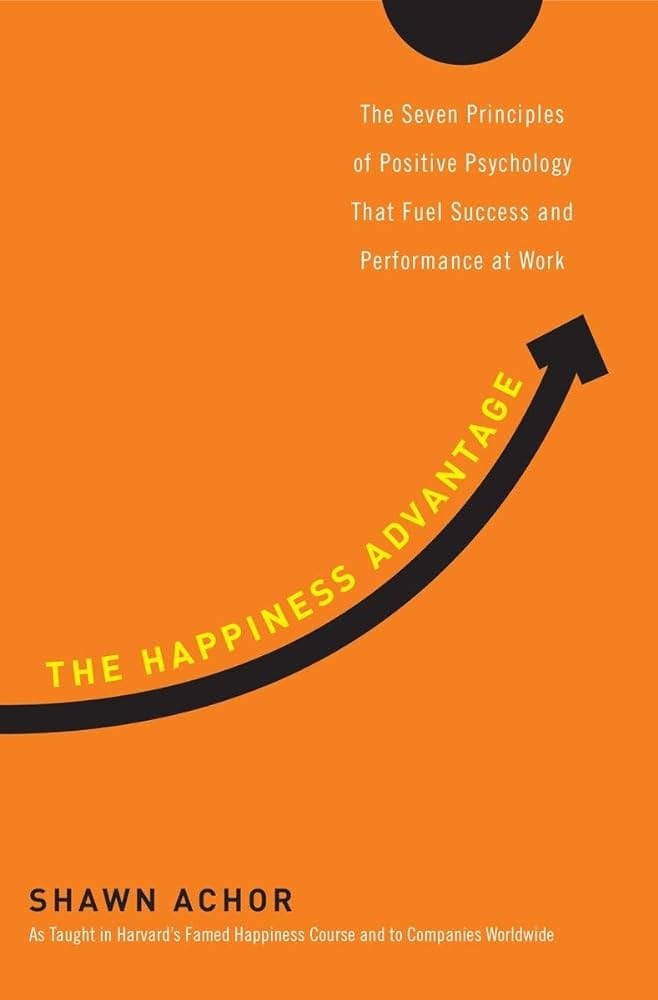- Non Fiction Fix
- Posts
- The Happiness Advantage
The Happiness Advantage
by Shawn Achor
Overview
"The Happiness Advantage: The Seven Principles of Positive Psychology That Fuel Success and Performance at Work" by Shawn Achor, published in 2010, is a ground-breaking exploration of the relationship between happiness and success. Achor, a Harvard-trained researcher and speaker, draws on extensive research in positive psychology to demonstrate how a positive mindset can enhance performance and productivity.
Central Thesis
The central thesis of "The Happiness Advantage" is that happiness is not merely a by-product of success but rather a precursor to it. Anchor argues that cultivating a positive mindset can significantly improve individual performance, creativity, and resilience, ultimately leading to greater success in various aspects of life.
Key Strengths
Research-Driven: The book is grounded in scientific studies and empirical evidence from the field of positive psychology.
Practical Framework: Achor presents actionable strategies that individuals can implement to boost their happiness and productivity.
Engaging Writing Style: The author uses relatable anecdotes and humour to convey his message effectively.
Comprehensive Principles: The book outlines seven core principles that guide readers toward achieving the happiness advantage.
Structure of the Book
The book is organised around seven key principles of positive psychology:
The Happiness Advantage: The idea that happiness fuels success.
The Fulcrum and the Lever: How mindset can amplify potential.
The Tetris Effect: The importance of focusing on positive patterns.
Falling Up: Learning from failure and adversity.
The Zorro Circle: The power of focusing on small, manageable goals.
The 20-Second Rule: Making changes easier by reducing barriers.
Social Investment: The significance of building strong relationships.
Key Concepts and Practical Insights
Happiness Fuels Success: Achor emphasises that a positive mindset leads to improved performance, creativity, and resilience. Incorporate daily practices that boost positivity, such as gratitude journaling or meditation.
Mindset Matters: The concept of the "fulcrum and the lever" illustrates how adjusting one’s mindset can enhance potential. Reframe challenges as opportunities for growth.
Positive Patterns: The "Tetris Effect" suggests that focusing on positive experiences can lead to a more optimistic outlook. Train your brain to recognize and celebrate small wins.
Learning from Failure: "Falling Up" highlights the importance of resilience and learning from setbacks. Analyse failures to extract valuable lessons and move forward.
Setting Manageable Goals: The "Zorro Circle" concept encourages focusing on small, achievable goals to build confidence. Start with one small goal and gradually expand.
Reducing Barriers: The "20-Second Rule" suggests that making positive behaviours easier to adopt can lead to lasting change. Decrease the time it takes to start a positive habit.
Building Relationships: "Social Investment" emphasises the importance of nurturing connections with others. Dedicate time to strengthen relationships and build a support network.
Memorable Quotes
"Happiness is the precursor to success, not merely the result."
"The most successful people are those who are able to see the positive in any situation."
"We cannot change the world until we change our mindset."
Critique
While "The Happiness Advantage" is widely praised for its practical advice and engaging style, some critics argue that it may oversimplify the complexities of happiness and success. Additionally, readers looking for in-depth psychological theories may find the content somewhat surface-level.
Target Audience
"The Happiness Advantage" is valuable for professionals, educators, and anyone interested in personal development and positive psychology. Its practical insights make it suitable for a broad audience seeking to enhance their happiness and performance.
Conclusion
"The Happiness Advantage" offers a compelling argument for the transformative power of happiness in achieving success. Shawn Achor’s research-based insights and actionable strategies provide readers with the tools to cultivate a positive mindset and improve their performance in various aspects of life. While some concepts may feel simplified, the book serves as an inspiring guide for anyone looking to harness the power of positivity to achieve their goals.
